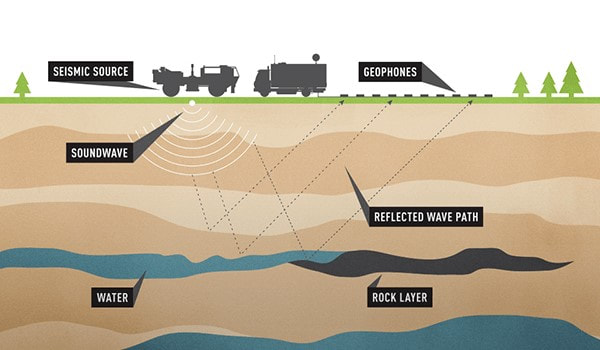All Categories
Featured
Table of Contents
An Assessment Of Geophysical Survey Techniques For ... in Madeley Aus 2022
Time piece from 23 to 25ns. This last slice is now practically all blank, however a few of the walls are still revealing highly.
How deep are these slices? Regrettably, the software I have access to makes estimating the depth a little difficult. If, however, the leading 3 pieces represent the ploughsoil, which is probably about 30cm think, I would guess that each piece has to do with 10cm and we are only coming down about 80cm in total.

Luckily for us, the majority of the websites we are interested in lie just below the plough zone, so it'll do! How does this compare to the other approaches? Contrast of the Earth Resistance data (top left), the magnetometry (bottom left), the 1517ns time slice (top right) and the 1921ns time slice (bottom left).
Gravity Geophysical Survey Method in Queens Park Oz 2023
Magnetometry, as discussed above, is a passive method determining regional variations in magnetism against a localised no value. Magnetic susceptibility survey is an active technique: it is a step of how magnetic a sample of sediment might be in the existence of an electromagnetic field. Just how much soil is checked depends on the size of the test coil: it can be very little or it can be relatively big.
The sensor in this case is extremely little and samples a tiny sample of soil. The Bartington magnetic susceptibility meter with a big "field coil" in use at Verulamium during the course in 2013. Top soil will be magnetically enhanced compared to subsoils just due to natural oxidation and decrease.
By determining magnetic vulnerability at a reasonably coarse scale, we can find areas of human occupation and middens. We do not have access to a trustworthy mag sus meter, however Jarrod Burks (who assisted teach at the course in 2013) has some excellent examples. Among which is the Wildcat site in Ohio.
Services Geophysical - Utility Survey Corp. in Pearsall Western Australia 2021
These towns are often set out around a central open location or plaza, such as this reconstructed example at Sunwatch, Dayton, Ohio. Sunwatch Village, Dayton, Ohio (image: Jarrod Burks). At the Wildcat site, the magnetometer study had actually located a range of features and houses. The magnetic susceptibility study assisted, nevertheless, define the primary location of occupation and midden which surrounded the more open area.
Jarrod Burks' magnetic vulnerability study results from the Wildcat website, Ohio. Red is high, blue is low. The technique is therefore of excellent usage in specifying areas of general profession rather than determining specific functions.
Geophysical surveying is a used branch of geophysics, which uses seismic, gravitational, magnetic, electrical and electro-magnetic physical approaches at the Earth's surface area to measure the physical residential or commercial properties of the subsurface - Geophysical Methods Commonly Employed For Geotechnical ... in Swan View Aus 2021. Geophysical surveying techniques generally measure these geophysical properties along with abnormalities in order to examine different subsurface conditions such as the existence of groundwater, bedrock, minerals, oil and gas, geothermal resources, spaces and cavities, and a lot more.
Latest Posts
What Is Geophysics And What Do Geophysicists Do? in Sinagra Australia 2023
Geophysics in Beckenham Western Australia 2022
Geophysical Survey - An Overview in West Perth Oz 2020